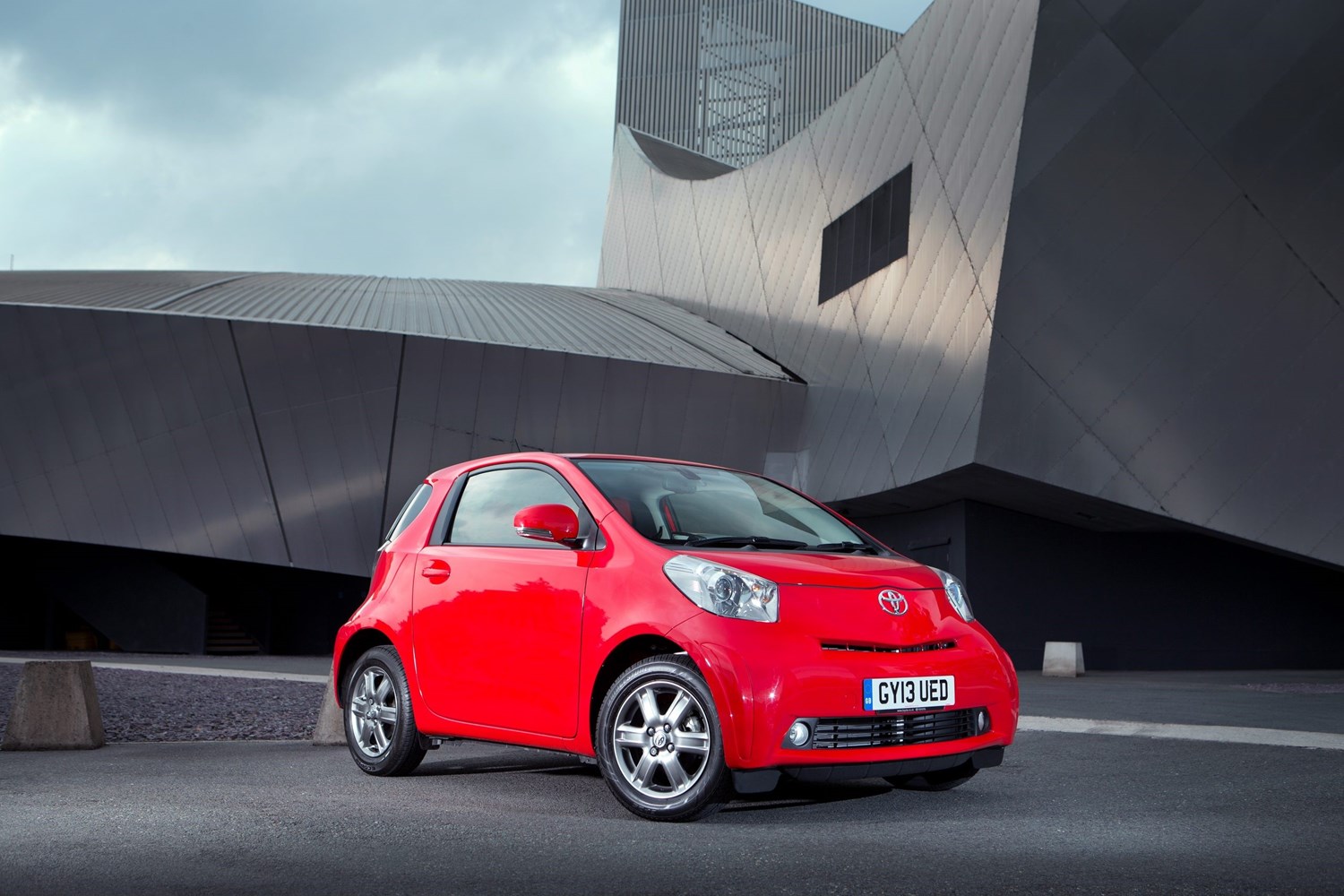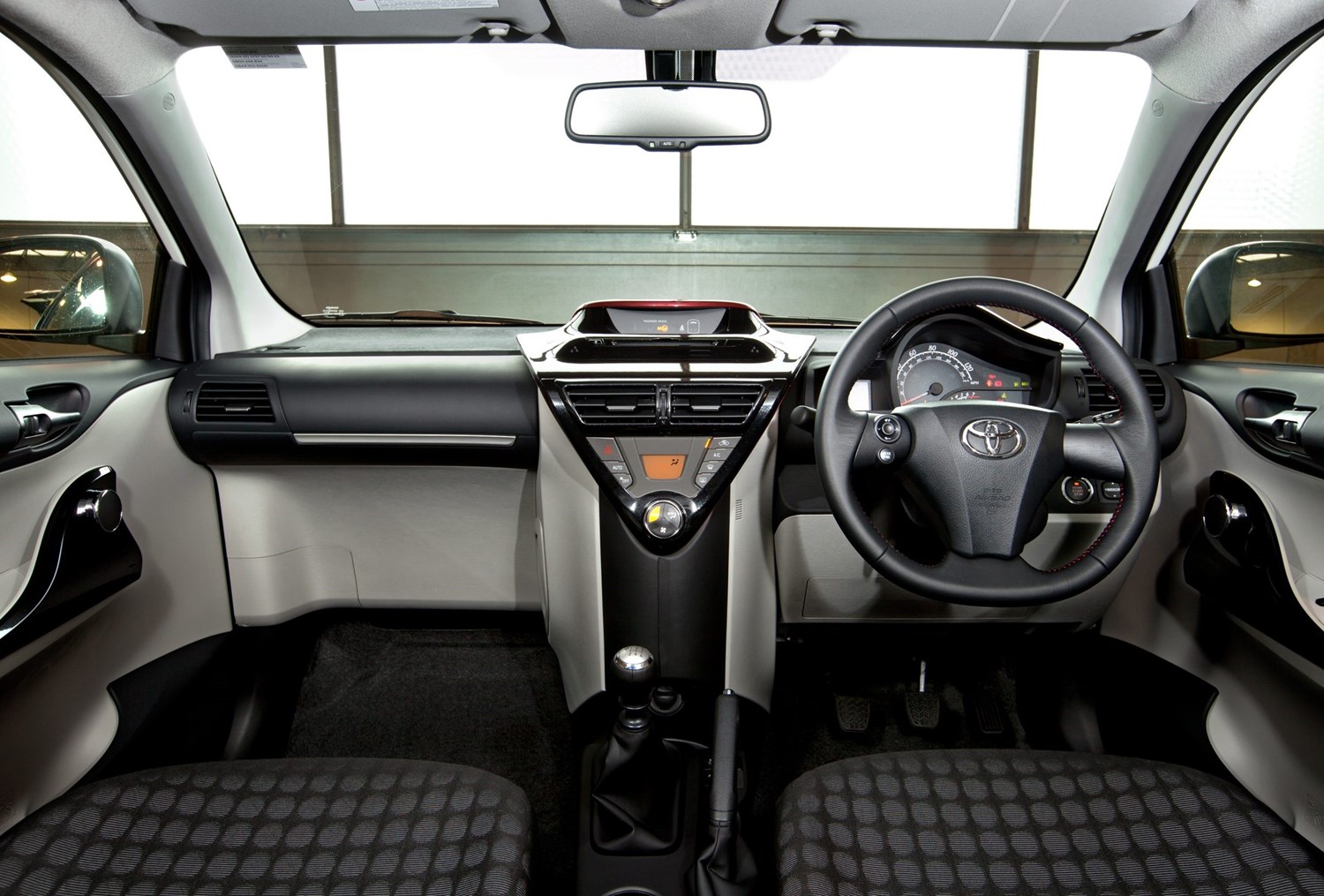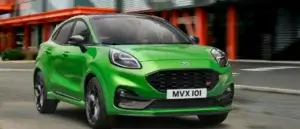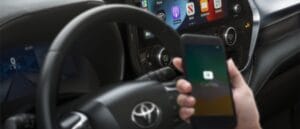Latest model
The IQ had a relatively small amount of time on sale, with the only real main change following later in 2009 with the arrival of a more powerful 1.33-litre petrol engine. Joining the existing 1.0-litre unit, this 98bhp model featured the same engine as that found in models like the Auris, Urban Cruiser and Yaris.
Very slight tweaks were also made to the IQ’s cabin for 2011, including additional soft-touch materials, a new black leather upholstery and grey interior ambiance.
The IQ’s other claim to fame is that it served as the basis for the Aston Martin Cygnet, the strangest model in the British sports car brand’s history, as it helped to drastically reduce its CO2 emissions in order to meet requirements.
Due to relatively small sales, Toyota discontinued the IQ in 2014, with no direct replacement ever following, though the Japanese firm does sell the Aygo in the city car segment.
Value for money
One of the limiting factors when the IQ was new back in 2008 was its price, as with a list price of £9,495 it cost more than plenty of rivals that were larger in size. That’s because this Toyota was a very expensive car to engineer, with many aspects to it having to be developed bespoke for it, rather than being shared with other models. That said, it still came with plenty of standard equipment, including 15-inch alloy wheels, air conditioning and six speakers. Move up to the mid-range ‘2’ model and elements like keyless entry and automatic lights and wipers are even included.
Even though the IQ hasn’t been on sale for a number of years, values have remained quite sturdy. Expect to pay around £2,500 for an example with 100,000 miles on the clock, and you’ll need to add a further £1,000 to that if you want something with around half that mileage. The best of the best examples command quite the premium, though, as you could spend up to £10,000 for an IQ with ultra-low miles.
Looks and image
If you think you need a big car to stand out, the Toyota IQ proves that doesn’t have to be the case. With its dinky and distinctive dimensions, there really is nothing quite like it to look at, and though the design is almost 15 years old, it still appears fresh and modern-looking from the outside. Standard-fit alloys and a great colour palette also help the IQ further.
Inside, the IQ interior is very cleverly thought through, with a V-shaped dashboard used to make sure it doesn’t intrude much on interior space, and reduce clutter as much as possible. A smart digital display up ahead, funky seat upholsteries and two-tone dashboard colours also adds extra appeal to the IQ, though aspects of the interior do feel quite cheap.
Behind the wheel, the IQ truly excels in towns and cities. It really is tiny in size and means you can fit into parking spaces where you’d normally not even attempt to try and squeeze a car. A brilliant turning circle also means it remains one of the best city cars ever made, helped by light steering and great visibility. The ride is a bit bouncy, however, and it’s not the best at higher speeds, though as you’d expect from a car that’s so small.





